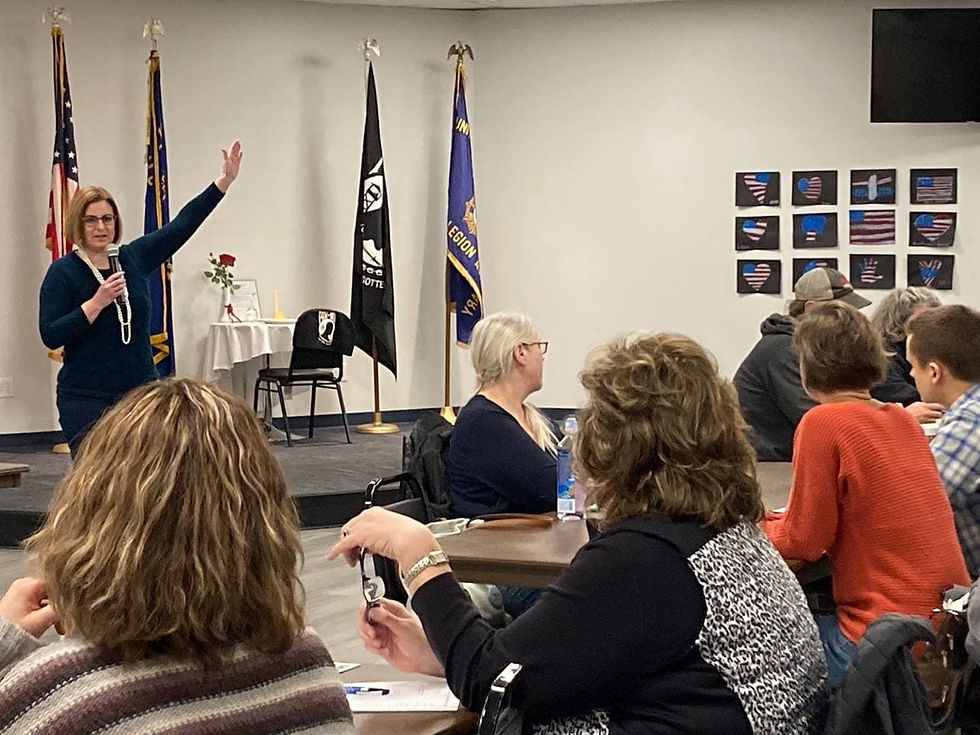What's so wrong with the Page Amendment?
- MHPR

- Mar 10, 2022
- 4 min read
Updated: Mar 12, 2022

What is the Page Amendment?
A bill seeking amendment to the Minnesota Constitution to make quality education the right of a child.
Who would it apply to:
Everyone. But It’s most concerning for those who Homeschool, Private School or Public School but may wish to opt out of standardized testing.
Actual Text:
A bill for an act proposing an amendment to the Minnesota Constitution, article XIII, section 1; providing for a fundamental right to quality public education for all children.
BE IT ENACTED BY THE LEGISLATURE OF THE STATE OF MINNESOTA:
Section 1. CONSTITUTIONAL AMENDMENT PROPOSED. An amendment to the Minnesota Constitution is proposed to the people. If the amendment is adopted, article XIII, section 1, will read:
Sec.1 All children have a fundamental right to a quality public education that fully prepares them with the skills necessary for participation in the economy, our democracy, and society, as measured against uniform achievement standards set forth by the state. It is a paramount duty of the state to ensure quality public schools that fulfill this fundamental right.
Sec.2. SUBMISSION TO VOTERS. (a) The proposed amendment must be submitted to the people at the 2020 general election. The question submitted must be: "Shall the Minnesota Constitution be amended to provide that all children have a fundamental right to a quality public education and establish that quality public schools are a paramount duty of the state? Yes? No? (b) The title required under Minnesota Statutes, section 204D.15, subdivision 1, for the question submitted to the people under paragraph (a) shall be: "Equal Right to Quality Public Education Amendment."
Supported by:
The Federal Reserve Bank
Opposed by:
Minnesotans for Health & Parental Rights
MACHE
HSLDA
ParentalRights.Org•MN
Opposed WHY?
• “All children have a fundamental right to a quality public education”.
All public education provided by the state should be quality and equal access to state resources for any citizens who wish to partake- but there are multiple education options that are high quality and the right should be reserved to the families to choose what mode is right for them. The phrasing here codifying PUBLIC education as a fundamental right creates an exclusive path to be argued against private and home education options as they are not public or controlled by the state- and nor should they be.
• “that fully prepares them with the skills necessary for participation in the economy, our democracy, and society”
This proposed amendment strikes out reference to us as a Republican government and replaces it with democracy. We are not a direct democracy but a constitutional republic.
• “measured against uniform achievement standards set forth by the state”.
“The fundamental theory of liberty upon which all governments of this Union rest excludes any general power of the State to standardize its children..." Pierce v. Society of Sisters, 268 US 510 (1925), at 535, emphasis added. Basic education standards in literacy and numeracy are helpful, but the recent drive for higher standards, instead of bringing higher achievement, is creating higher levels of stress resulting in more teen suicides or other negative outcomes. We do not need higher standards, but a higher percentage of students achieving the basic standards already set.
• “It is a paramount duty of the state to ensure quality public schools that fulfill this fundamental right.”
The state does have a duty to provide quality schools as one option to fulfill this right, this need for education. But we must be clear that it is not the only option. The education of children is a duty that resides first with parents; the state's job is to provide resources, such as quality public schools, for those families who choose to use them.
• While proponents of this amendment are drawing your attention to the concept of providing QUALITY public education, it endangers educational choice and parental rights. What should be noted here is the fact it is creating PUBLIC education as a RIGHT. Who decides when a “child’s right” here has been violated? What’s a violation? Is it a violation if a parent chooses a NON-PUBLIC schooling option? Is it a violation if the curriculum of that option is not approved or controlled for quality assurance by the state? Maybe a child would like to attend public but the parents have weighed the pros and cons and decided a local private school is a better option- is the child’s right being denied? Does the state intervene? There are many troubling questions and uses for an amendment such as this.
Amending the Minnesota constitution will not fix the disparities in the public school system. It only serves as an inroad to potentially limit freedom of school choice. Parental rights and an open market for educational options are the best answer to being able to select what works best for each individual student, and thus truly address what is lacking in the public school’s current one size fits all approach.
Other Important Information:
The Minneapolis Federal Reserve’s lobbying for the Page Amendment undermines the bank’s independence and might just break the law.



Comments